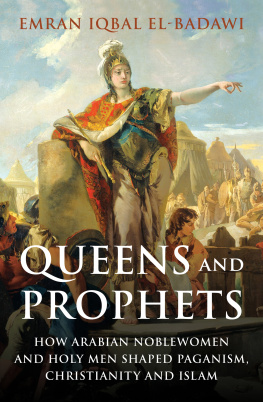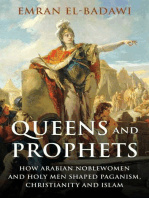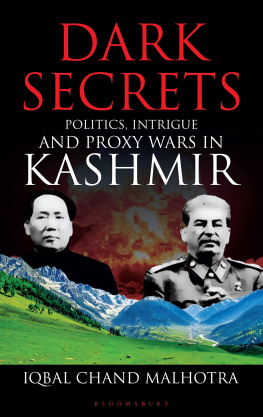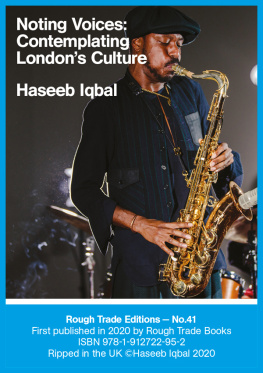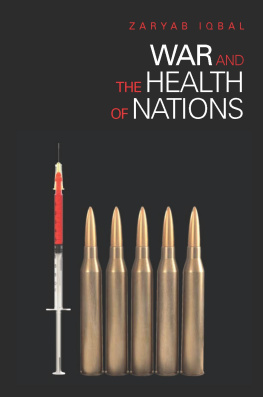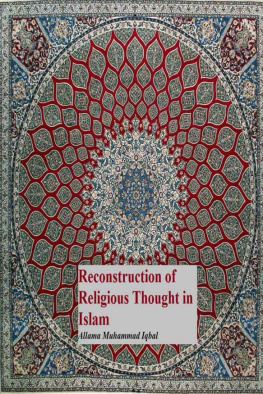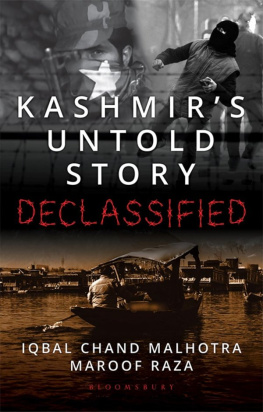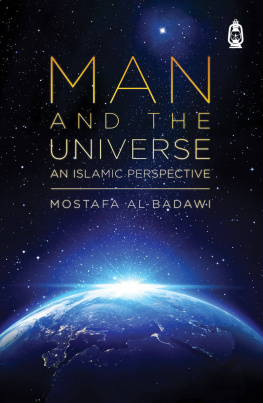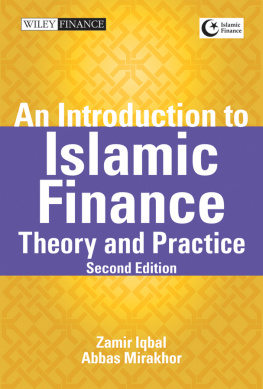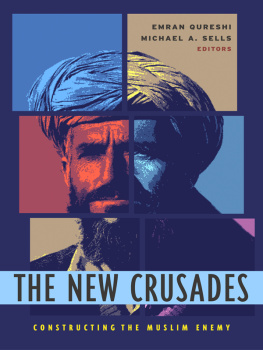El-Badawi Emran Iqbal - Queens and Prophets
Here you can read online El-Badawi Emran Iqbal - Queens and Prophets full text of the book (entire story) in english for free. Download pdf and epub, get meaning, cover and reviews about this ebook. publisher: Oneworld Publications, genre: Religion. Description of the work, (preface) as well as reviews are available. Best literature library LitArk.com created for fans of good reading and offers a wide selection of genres:
Romance novel
Science fiction
Adventure
Detective
Science
History
Home and family
Prose
Art
Politics
Computer
Non-fiction
Religion
Business
Children
Humor
Choose a favorite category and find really read worthwhile books. Enjoy immersion in the world of imagination, feel the emotions of the characters or learn something new for yourself, make an fascinating discovery.
- Book:Queens and Prophets
- Author:
- Publisher:Oneworld Publications
- Genre:
- Rating:5 / 5
- Favourites:Add to favourites
- Your mark:
- 100
- 1
- 2
- 3
- 4
- 5
Queens and Prophets: summary, description and annotation
We offer to read an annotation, description, summary or preface (depends on what the author of the book "Queens and Prophets" wrote himself). If you haven't found the necessary information about the book — write in the comments, we will try to find it.
Queens and Prophets — read online for free the complete book (whole text) full work
Below is the text of the book, divided by pages. System saving the place of the last page read, allows you to conveniently read the book "Queens and Prophets" online for free, without having to search again every time where you left off. Put a bookmark, and you can go to the page where you finished reading at any time.
Font size:
Interval:
Bookmark:


For Zacharia, Adam, and Danyal
Chess is a game of life.
The queen is the most powerful piece on the board.
Respect the queen.
Win the game.
I DID NOT choose to write this book. This book chose me as its messenger. Lest I be cast as a false prophet for making such a claim, allow me to explain.
While conducting research on holy men in late antique Arabia, I stumbled upon the prominence of regal women instead. Little more than their names are known to many of us. The stories of the regions foremost empress, warrior, and noblewoman are of unprecedented brilliance and enormous consequence. Each woman helped raise an unassuming holy man to the heights of historic notoriety. I began to wonder. Were these women connected at all, how much power did they wield, and were they robbed of this power by men?
Amid this battle of the sexes, I discovered a series of untold stories lurking in the shadows between ancient Near Eastern, biblical, and Islamic traditions. The complex narrative history of these queens and their male prophets shaped the religion, politics, and culture of late antique Arabia, influencing the rise of Arab identity, early Christianity, and the beginnings of Islam. As I dug deeper it became clear to me that the influence of female nobility on male prophecy had a significant impact on the worldview of the eastern churches and the Quran, and that their influence was overwritten by generations of religious apologists.
Not everyone has welcomed this project. Some colleagues scoffed at the very idea of excavating female power out of the imagined black hole of pre-Islamic Arabiathe jahiliyyah. Some of my detractors were concerned that the sheer paucity of documentary evidence made such a venture impossible. Others flatly rejected my vision as an Arabian episode of The Da Vinci Code. Of course, I take constructive criticism seriously. But many of my critics simply lacked imagination. They could scarcely concede the patriarchal nature of our evidence, i.e. the Arabic, Syriac, Greek, and Latin sources scholars cherish so dearly. Still, most of my colleagues expressed their enthusiasm for a fresh perspective on the sources, as this project offers. I thank my supporters and detractors alike. Their feedback compelled me to argue my position both rigorously and energetically.
Finally, this book makes bold claims. I know. Some readers may not accept my analysis of female power or concomitant patriarchal traditions due to their own ideological commitmentsbe they political, religious, or academic. I ask only that you keep an open mind. The evidence, once meticulously laid out, is not so scarce. And the story, when thoughtfully told, is not so far-fetched.
Emran El-Badawi, Houston
COMPLETING THIS BOOK would not have been possible without the generous partnership and the careful consultation of esteemed colleagues and dear friends. Essential to my research was a visit to the Centre National de la Recherche Scientifique in Paris, where Lala Nehm and Christian Robin kindly offered their wisdom on North and South Arabian epigraphy. I thank a number of colleagues for meeting with me and offering their valuable feedback on the multiple dimensions of this project.
Between my travels to New York and Princeton, Robert Hoyland and Michael Cook helped me explore questions about late antique Arabia and Islamic origins, broadly speaking. My thanks go to Sebastian Brock for his advice in identifying important Syriac literature and Aramaic epigraphy. My heartfelt gratitude goes to Kecia Ali who reviewed an early draft of this project, and whose constructive feedback helped me to situate this project between studies on late antiquity, feminist studies, and Islamic history. Karen Bauer and Gabriel Reynolds generously offered their expertise on the Quran. Aziz Al-Azmeh, Fred Donner, Paula Sanders, David Cook, Catharina Rachik, Hani Khafipour, Marie Theresa Hernandez, and Roberta Sabbath shared with me innovative methods for writing history given the sheer lack of documentary evidence we have for late antique Arabia. I am likewise indebted to Kristina Neumann for sharing her wisdom on Roman Syria. And I thank Philip Wood, Azad Sadr, and Marie des Neiges Lonard for their help in improving my introduction.
Thanks go to John Kutsko, Sophia Arjana, and Reza Aslan for their guidance and inspiration over the years. I thank Hildegard Glass, Michael Fares, Devianee Vasanjee, Rishika Harrylall, and Jessica Ortega for helping to make my research sabbatical a reality despite various challenges, and for their tireless work and friendship always. My gratitude goes to several anonymous reviewers on their constructive feedback on earlier versions of this book. And I offer jubilant praise of the visionaries at Oneworldespecially Novin Doostdar, Jonathan Bentley-Smith, and Rida Vaquasfor transforming dreams into reality. Many colleagues and friends have enriched my research through several discussions and meetings. Nevertheless, the ideas shared in this book, and whatever responsibility accompanies them, are my own.
I am indebted to my students at the University of Houston. Our class discussions in my courses on Women and Gender in Arabic Literature and Early Islamic Society provided fruitful fodder for this project. My appreciation also goes to Majida Hourani and Hazel Thomson for their inspiration and encouragement. Special thanks go to Gale Jenkins, Christine Jenkins, and Brian Eukel for instilling within our family the values of critical thinking, competitiveness, and community through the timeless game of chess.
This book also relied upon the material support of multiple internal grants from the College of Liberal Arts and Social Sciences at the University of Houston. Research towards this book was first presented in 2018 at the Department of Middle Eastern Studies at the University of Texas at Austin, and shared with colleagues in subsequent years at the annual conferences of the International Quranic Studies Association, Society of Biblical Literature, and American Academy of Religion.
I am wholeheartedly indebted to Rasha Shammaa. Thank you for designing the maps to this book, for giving me the space to write and travel, and for your tireless support and sacrifice over the years. I thank my children, whose precious youth and energy occasionally conspired against my research, but who compensated for this by helping me transcribe evidence for this project. This feat was undertaken in quarantine during the Covid-19 pandemic of 20202021, and it succeeded as a result of their love of reading and storytelling.
Confinement compelled me to complete this book in a state of anguish and isolation. My writing was interrupted by episodes of severe anxiety, and I was haunted by perpetual disruption all around me. Not least among these were the lasting effects and unrest caused by the global pandemic, state-born xenophobia, popular protest, and the encroaching climate crisis. This book was written amid new struggles against age-old injustices. In a world beset by crisis and rife with conflict, writing this book seemed like the right thing to do.
A | Arabica |
A2 | Adumatu |
A3 | Aram |
AA |
Font size:
Interval:
Bookmark:
Similar books «Queens and Prophets»
Look at similar books to Queens and Prophets. We have selected literature similar in name and meaning in the hope of providing readers with more options to find new, interesting, not yet read works.
Discussion, reviews of the book Queens and Prophets and just readers' own opinions. Leave your comments, write what you think about the work, its meaning or the main characters. Specify what exactly you liked and what you didn't like, and why you think so.

